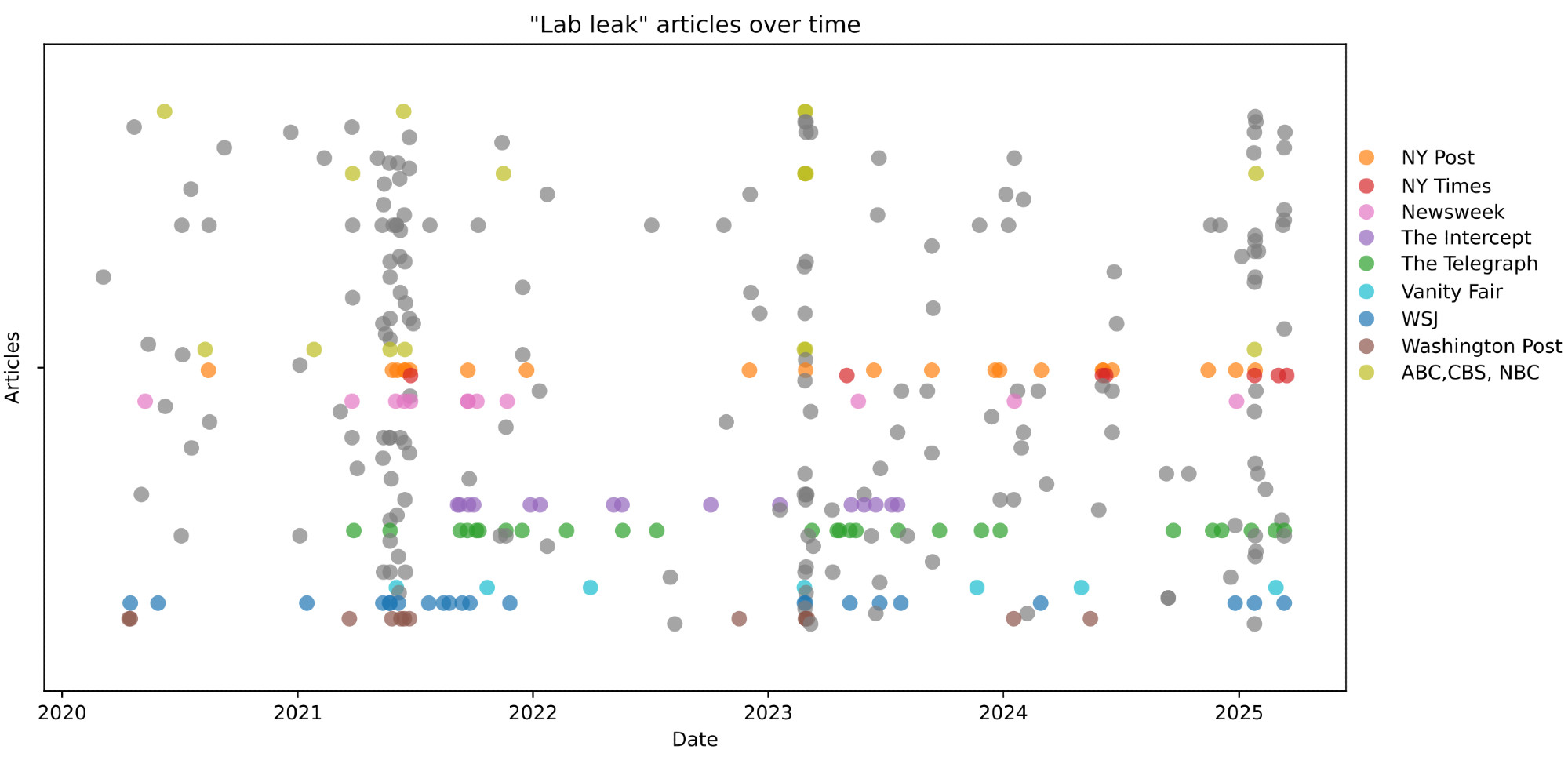Not gonna link to or rebut the lab origin opinion in this morning's NYT. It's just the same old stuff rehashed again.
Instead I briefly counted any misleading articles I could find that were supportive or uncritical of a lab origin.
I found 324 articles since Mar 2020. The median month had 3.
Instead I briefly counted any misleading articles I could find that were supportive or uncritical of a lab origin.
I found 324 articles since Mar 2020. The median month had 3.

Comments
https://michaelweissman.substack.com/p/an-inconvenient-probability-v57
You are very wrong about that evidence, as different folks have patiently tried explaining to you. Which is why the scientific community disagrees with you, and why you would have also lost $100k as well :)
I guess other news stories like the vaccines and the Ukraine war kept everyone busy?
This dataset is certainly incomplete, so ~1 a week is a safe guess.
But especially in the context that experts anonymously put the median odds for the idea at 10%.
And with the context that it is even more strongly rejected by the data today. The 0.3% odds outcome from the $100k debate is good, but still an overestimate.
If such articles were published in China or Russia every week for 5 years about a Ft. Detrick origin, we would all recognize that for what it is.
Pretty solid parallel, especially the pre-war period when Blix looked where we said to and found nothing.
Scientists and good journalists were covering the possibility from a scientific and skeptical standpoint then: https://archive.ph/kREIY
But if someone did have a strong opinion on that, my strong advice would be to have the intellectual honesty to not pretend that has anything to do with the origins of COVID-19.
So why one and not the other? Is is because there is nuance (gasp) behind biosafety regulations for each virus
https://www.cell.com/cell/fulltext/S0092-8674(23)00049-1
https://www.technologyreview.com/2022/02/09/1044985/shi-zhengli-covid-lab-leak-wuhan/
It is said that the USA uses BSL-2 for deadly pig bat-related viruses.
Probably not, because they are following local guidelines.
https://my.absa.org/tiki-index.php?page=Riskgroups&default%5bcontent%5d=rhabdoviridae
Somehow I don’t think this time they will give a compelling discussion of biosafety either